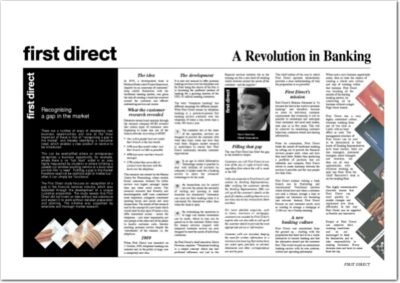Family office investment refers to the management of wealth and financial assets for high-net-worth families through a dedicated entity known as a family office. This structure is designed to centralise the family’s financial affairs, providing a comprehensive approach to wealth management that encompasses investment strategies, estate planning, tax optimisation, and philanthropic activities. The concept of family offices has evolved significantly over the past few decades, transitioning from simple wealth management services to sophisticated investment vehicles that can rival institutional investors in terms of strategy and scale.
The origins of family offices can be traced back to the 19th century when affluent families sought to preserve their wealth across generations. The Rockefeller family is often cited as one of the first to establish a family office, which was created to manage their vast fortune and ensure its longevity. Today, family offices can be broadly categorised into two types: single-family offices (SFOs), which serve one family exclusively, and multi-family offices (MFOs), which provide services to multiple families.
This distinction is crucial as it influences the investment strategies employed, the level of personalised service offered, and the overall operational structure.
Summary
- Family offices are private wealth management advisory firms that serve ultra-high-net-worth individuals and their families, providing a range of services including investment management, estate planning, and philanthropy.
- Family offices play a crucial role in investment by providing tailored investment strategies, managing assets, and preserving wealth for future generations.
- Family offices manage a diverse range of investments including equities, fixed income, real estate, private equity, and alternative investments such as hedge funds and venture capital.
- The advantages of family office investment include personalised investment strategies, access to exclusive investment opportunities, and the ability to preserve and grow family wealth over generations.
- Family offices face challenges in investment such as regulatory compliance, succession planning, managing family dynamics, and adapting to market volatility, requiring strategic planning and risk management to navigate successfully.
The Role of Family Offices in Investment
Family offices play a pivotal role in the investment landscape, acting as both capital providers and strategic partners. They possess unique advantages that allow them to navigate complex financial markets with agility and foresight. Unlike traditional investment firms, family offices are not beholden to external shareholders or quarterly performance pressures, enabling them to adopt a long-term investment horizon.
This flexibility allows them to pursue innovative investment opportunities that may be overlooked by more conventional investors. Moreover, family offices often have access to exclusive investment opportunities due to their extensive networks and relationships within various industries. They can invest in private equity, venture capital, real estate, and other alternative assets that require a more nuanced understanding of market dynamics.
This ability to engage in direct investments or co-investments with other institutional players enhances their portfolio diversification and potential for higher returns. Additionally, family offices frequently leverage their operational expertise to add value to their investments, whether through strategic guidance or active involvement in management.
Types of Investments Managed by Family Offices

Family offices manage a diverse array of investments that reflect the unique goals and risk appetites of the families they serve. Traditional asset classes such as equities and fixed income remain staples in many family office portfolios; however, there is a growing trend towards alternative investments that offer the potential for enhanced returns and reduced correlation with public markets. Private equity is a prominent area of focus, allowing family offices to invest directly in companies or funds that are not publicly traded.
This asset class often provides opportunities for significant capital appreciation over time. Real estate is another critical component of family office investment strategies. Many families view real estate not only as a means of generating income but also as a tangible asset that can appreciate in value over the long term.
Family offices may invest in residential, commercial, or industrial properties, often employing a mix of direct ownership and real estate funds. Furthermore, the rise of impact investing has led many family offices to allocate capital towards ventures that align with their values, such as sustainable energy projects or social enterprises. This shift reflects a broader societal trend towards responsible investing, where financial returns are pursued alongside positive social or environmental outcomes.
Advantages of Family Office Investment
One of the primary advantages of family office investment is the ability to tailor strategies specifically to the family’s needs and objectives. Unlike institutional investors who must adhere to rigid mandates, family offices can adopt a bespoke approach that considers the family’s risk tolerance, liquidity requirements, and long-term goals. This personalised service fosters a deeper understanding of the family’s values and aspirations, allowing for more effective wealth preservation and growth strategies.
Additionally, family offices benefit from a holistic view of wealth management that encompasses not only investments but also tax planning, estate management, and philanthropic initiatives. This integrated approach ensures that all aspects of the family’s financial life are aligned and working towards common objectives. Furthermore, family offices often have lower fees compared to traditional asset managers due to their in-house capabilities and reduced reliance on external advisors.
This cost efficiency can significantly enhance net returns over time.
Challenges Faced by Family Offices in Investment
Despite their many advantages, family offices encounter several challenges in their investment endeavours. One significant hurdle is the need for robust governance structures that can effectively manage decision-making processes within the family. As families grow and become more complex, differing opinions on investment strategies can lead to conflicts and inefficiencies.
Establishing clear governance frameworks is essential for ensuring that all family members are aligned on investment objectives and that decisions are made transparently. Another challenge lies in the rapidly changing investment landscape characterised by technological advancements and evolving market dynamics. Family offices must stay abreast of emerging trends such as digital assets, artificial intelligence in trading, and shifts in global economic conditions.
This requires continuous education and adaptation, which can be resource-intensive. Additionally, many family offices struggle with succession planning; ensuring that the next generation is equipped with the knowledge and skills necessary to manage wealth effectively is crucial for long-term sustainability.
Strategies for Successful Family Office Investment

To navigate the complexities of investment successfully, family offices often employ a range of strategies tailored to their specific circumstances. One effective approach is diversification across asset classes and geographies. By spreading investments across various sectors and regions, family offices can mitigate risks associated with market volatility while enhancing potential returns.
This strategy not only protects against downturns in specific markets but also allows for participation in growth opportunities across different economies. Another key strategy involves leveraging partnerships with experienced fund managers or co-investing alongside reputable institutional investors. By collaborating with established players in the market, family offices can gain access to exclusive deals and insights that may not be available through traditional channels.
Additionally, many family offices are increasingly adopting data-driven approaches to investment decision-making. Utilising advanced analytics and technology can provide valuable insights into market trends and help identify promising investment opportunities.
Trends in Family Office Investment
The landscape of family office investment is continually evolving, influenced by broader economic trends and societal shifts. One notable trend is the increasing focus on impact investing, where families seek to align their investments with their values while generating financial returns. This movement has gained momentum as younger generations prioritise sustainability and social responsibility in their investment choices.
Family offices are increasingly allocating capital towards ventures that address pressing global challenges such as climate change, healthcare access, and education. Another significant trend is the growing interest in technology-driven investments. The rise of fintech has opened new avenues for family offices to explore innovative financial solutions and disruptive business models.
Many family offices are investing in technology startups or funds focused on digital transformation across various industries. Additionally, there is a marked increase in interest towards cryptocurrency and blockchain technology as families seek to diversify their portfolios further and tap into emerging asset classes.
The Future of Family Office Investment
Looking ahead, the future of family office investment appears promising yet complex. As global markets continue to evolve, family offices will need to adapt their strategies to remain competitive while navigating an increasingly interconnected world. The integration of technology into investment processes will likely play a crucial role in shaping future strategies; data analytics, artificial intelligence, and machine learning will enable more informed decision-making and enhance operational efficiencies.
Moreover, as societal expectations around corporate responsibility continue to rise, family offices will increasingly be called upon to demonstrate their commitment to ethical investing practices. This shift may lead to greater transparency in reporting on environmental, social, and governance (ESG) factors within their portfolios. Ultimately, the ability of family offices to innovate while staying true to their core values will determine their success in an ever-changing investment landscape.
As they continue to evolve alongside market trends and societal expectations, family offices will remain vital players in shaping the future of wealth management and investment strategies globally.
If you are interested in learning more about successful case study techniques to boost your sales, you should check out the article “Sky Rocket Your Sales with These Amazing Case Study Techniques”. This article provides valuable insights into how businesses can effectively use case studies to drive sales and attract new customers. It is a great resource for anyone looking to improve their marketing strategies and increase their revenue.
FAQs
What is a family office investment?
A family office investment refers to the investment activities carried out by a family office on behalf of a wealthy family or individual. Family offices are private wealth management advisory firms that serve ultra-high-net-worth individuals and their families.
What types of investments do family offices typically make?
Family offices typically make a wide range of investments, including but not limited to stocks, bonds, real estate, private equity, venture capital, hedge funds, and direct investments in private companies.
What are the benefits of family office investment?
Family office investment offers several benefits, including access to exclusive investment opportunities, personalized investment strategies tailored to the family’s specific needs and goals, and the ability to preserve and grow the family’s wealth over multiple generations.
How do family offices differ from other types of investment firms?
Family offices differ from other types of investment firms in that they are specifically dedicated to managing the wealth of a single wealthy family or individual, rather than managing the assets of multiple clients. This allows for a highly personalized and bespoke approach to investment management.
What are the typical requirements for becoming a client of a family office?
The typical requirements for becoming a client of a family office include having a high net worth, often in the range of tens of millions of pounds or more, and a desire for comprehensive wealth management services, including investment management, estate planning, tax planning, and philanthropic advising.
 A revolution in banking (PDF)
A revolution in banking (PDF)  The advantages of sponsorship (PDF)
The advantages of sponsorship (PDF) 